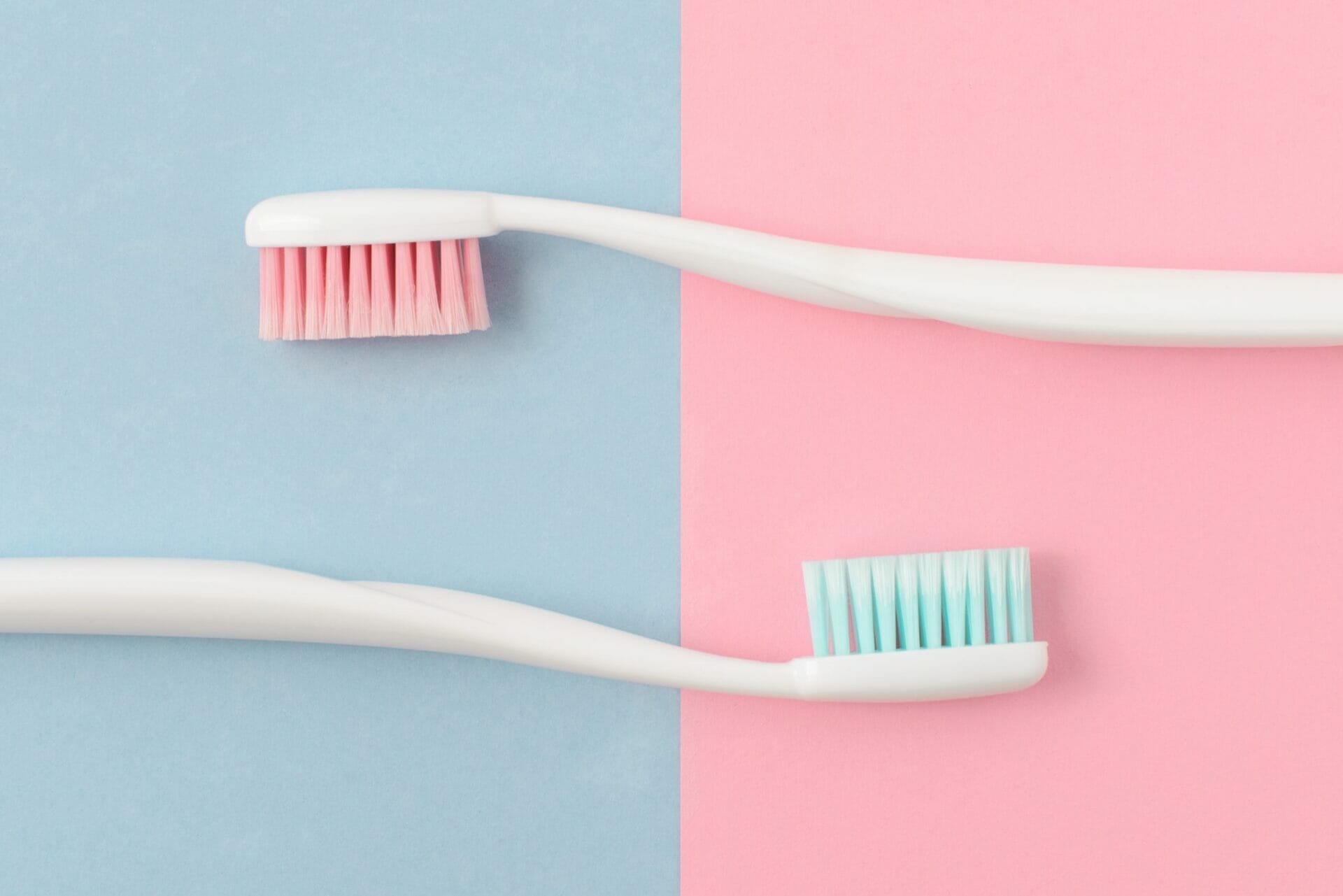
I am a Dentist in Kitchener, ON, and each week I like to explore a question that I commonly get at my Family Dental office. This week, I'd like to discuss how often to change your toothbrush and the disadvantages of keeping the same brush for too long.
Your toothbrush is a tool for removing plaque from your teeth. You can also use your toothbrush to lightly brush your tongue. This helps to turn over the surface of your tongue and deprives odour-causing bacteria of the dead cells they need to thrive. But can your toothbrush be a hazard to your health?
Let's talk about a couple of ways that your toothbrush can harm you as well as what you can do to maximize the benefits associated with using one.
Toothbrush bristles and bristle heads harbour bacteria and viruses. The point where each bristle inserts onto the toothbrush head provides another nook where bacteria can grow and viruses can hide. Translucent brush heads are healthier overall because light can pass through them and this disrupts the growth of pathogens to some degree.
When you're sick, you seed your toothbrush with pathogens causing your illness. If your brush comes into contact with a partner's toothbrush, you can transmit disease. Also, if you suffer from cold sores caused by viral herpes, virus particles can stay on your toothbrush to increase the frequency of future flare-ups.
To better clean your brush, you can use a natural castile soap or sterilize your brush using boiling water.
Your toothbrush bristles are designed to disrupt plaque and remove it from around your teeth. The bristles are polished on a new toothbrush but they become rougher over time. If you use the same toothbrush for more than 2-3 months, you end up gouging tooth enamel and dentin in small amounts. Of course, these effects accumulate over time. In fact, the damage done by using a frayed brush can be significant in people who use a lateral scrubbing technique when brushing their teeth.
Ideally, you should change your toothbrush every 2 months. This will prevent you from using a toothbrush that is home to large amounts of bacteria and virus particles. It will ensure that your toothbrush bristles are kind to your teeth while being effective at removing plaque and tartar.
I would also recommend changing your toothbrush after a bout with cold sores even if it is not 2 months old.
Thank you for reading today. I hope the article has provided some clarity about how often to change your toothbrush.
Our Kitchener Dental Office is conveniently located in Downtown Kitchener. We are a short drive away for families in Waterloo, Breslau & St. Jacobs. Our central location means we truly offer family dentistry near you!
Services
Routine Dentistry & Tooth Repair
Oral Surgery & Tooth Removal
Prosthetic Dentistry & Tooth Replacement
Protective/Preventive Services
Teeth Whitening
Schedule an Appointment Now
